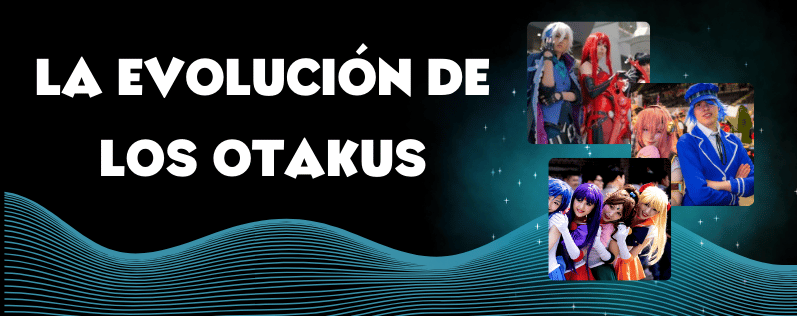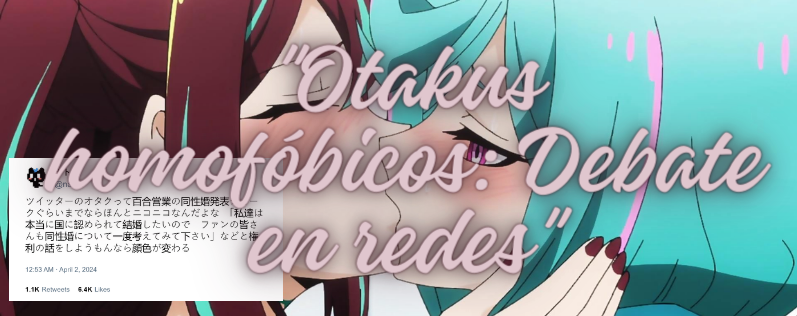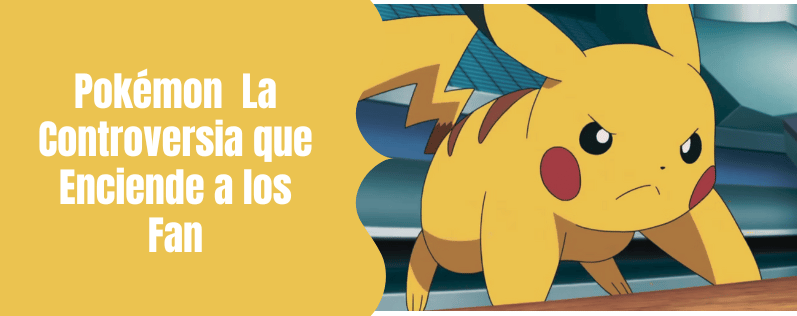The Evolution of the Otaku

The Evolution of the Otaku: From Social Oddities to Cultural Icons
During the 1980s, being an otaku was almost synonymous with being a social outcast in Japan. The term, which became popular at the time, was used to describe fans of anime, manga, video games and other similar hobbies, often with a negative connotation.
Change of Perception
However, over time, the perception of otaku has changed dramatically. Today, being an otaku is much more accepted, and even celebrated in some circles. What has brought about this change? Primarily, the growing popularity of anime and manga globally, which has led to a greater understanding and acceptance of these hobbies.
Standardization in the Media
One of the key factors in this transformation has been the normalization of otaku culture in the media. TV shows, movies and events dedicated to anime and manga have played a key role in changing the narrative. No longer just a fringe hobby, anime and manga have become mass phenomena. Series such as "Naruto", "Dragon Ball"and "One Piece" have broken ratings and sales records both in Japan and abroad.
Audience Diversification
In addition, the otaku audience has diversified. They are no longer just young people secluded in their rooms watching anime or reading manga. Today, we find otaku of all ages and professions. Even celebrities and public figures have confessed their love for anime and manga, helping to destigmatize these hobbies.
Community Comments
Social networks have been a reflection of this change in perception. Here are some comments from users that highlight how the acceptance of otaku in society has evolved:
"Being an otaku was like being a hidden Christian, we lived in secret. Today's otaku think it's normal to be accepted in society, but that's a big mistake."
"It's not a question of being accepted or not, it's that there are practically no people in this era who haven't watched anime or manga."
"Our continued effort has finally made it infiltrate society at large. It's not easy to lead a crowd that doesn't know right from wrong."
The Otakus in the present
Today, otaku have found their place in society. Events such as the Comic Market in Tokyo, which attracts hundreds of thousands of attendees, and the popularity of cosplay, where people dress up as their favorite anime characters, are clear examples of how this subculture has gained acceptance.
The Otaku Economy
The economic impact of otaku culture is undeniable. The anime and manga industry generates billions of dollars annually, not only in Japan, but worldwide. Conventions, merchandise sales, and anime streaming services contribute significantly to this figure.
Cultural Integration
In addition, otaku culture has begun to integrate into other aspects of everyday life. From themed coffee shops to fashion products inspired by anime characters, the otaku influence is everywhere. Even in the workplace, being an otaku is no longer a stigma; some companies look favorably on employees who share these interests, as they demonstrate creativity and passion.
Frequently Asked Questions
1. What does it mean to be an otaku nowadays?
Being an otaku today means being passionate about anime, manga, video games, and other related forms of entertainment. Unlike in the past, this passion is widely accepted and celebrated in many social circles.
2. Why did the perception of otaku change?
The perception of otaku changed mainly due to the globalization of anime and manga, the normalization in the media and the diversification of the audience for these forms of entertainment.
What is the economic impact of otaku culture?
Otaku culture has a significant economic impact, with the anime and manga industry generating billions of dollars annually through merchandise sales, conventions, and streaming services.
Personal Opinion
As an anime and manga fan, I'm glad to see how the perception of otaku has evolved. Going from being considered social outcasts to cultural icons demonstrates a positive shift towards greater acceptance of diversity of interests and passions. However, it is important to keep working to make this acceptance even broader and to ensure that all forms of hobby are respected and valued.
Conclusion
The evolution of the perception of otaku in Japanese society is a clear example of how subcultures can gain acceptance and recognition over time. Thanks to globalization and the diversification of the public, being an otaku is no longer a stigma, but a source of pride. This change not only benefits fans, but also society in general, which is enriched by the diversity of interests and passions.
If you have been interested in this article, we invite you to check out our blog for more content about otaku culture, anime, manga and much more, don't miss it!




Responses